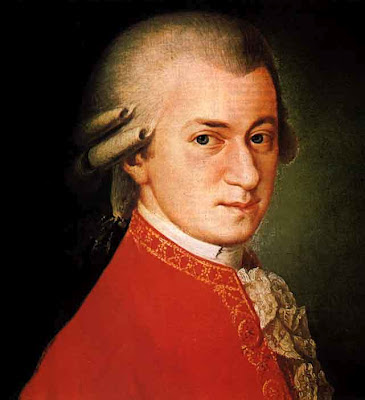Antonio Vivaldi was born 1678 in Venice (the exact date is unknown) and passed away on July 28, 1741 in Vienna/Austria. He was an Italian composer and violinist and became a violinist pupil of the great Giovanni Legrenzi (1626-1690).
In 1703, Vivaldi was ordained as priest and has been nick-named as the "red haired priest" (Il prete rosso). 1716, he became principal of the music school for girls in Venice. He loved to travel extensively and became one of the first composers of his time. He was one of the first composers, using clarinets and composed fantastic chamber music, secular cantatas, church music, oratorio, and operas.
Despite tremendous output, he was by no means a conventional composer, and much of instrumental works show a lively and fertile imagination. As with Bach, Vivaldi's music was unfashionable and unpopular or many years; however, since the 1950s, there has been enormous revival of interest in Vivaldi's music especially in Europe, and later followed also in the USA. Especially his cincerts, among which four works for violin, collectively known as "The Four Seasons", have become particularly popular.
Appreciating Vivaldi's originality and diversity is to get beyond the form, and to listen to his fresh and melodic writings. Vivaldi invented a a structure for his conciertos that served him very we. No two pieces are exactly the same, and the combination of structural discipline and melody freedom is the hallmark of musical greatness from any period.
Vivaldi composed 49 operas, 22 pieces only for the town of Venice. Johann Sebastian Bach admired Vivaldi so much, that he rearranged some compositions of Vivaldi and felt very much inspired for more wonderful compositions.
Vivaldi died in Vienna in totally poverty.








